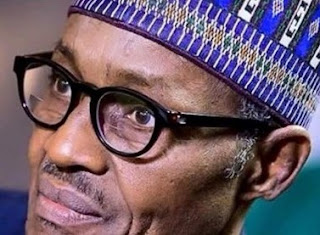Written by the Editorial Board of The Guardian Newspaper
The public excitement that should have greeted the launch the other day of a critical segment of the promise of ‘change’ by the Muhammadu Buhari’s administration may have been adversely affected by a shocking discovery that part of the pitching speech by the president contained some lines from a 2008 speech of the American president, Barack Obama. But, there is no denying the fact that such a campaign is needed both substantially to make Nigerians and Nigeria better, but also symbolically, to advertise the way forward.
It is gratifying to note that the presidency has promised to sanction an unnamed aide who has been fingered as having carelessly inserted a portion of Obama’s speech into Buhari’s keynote address at the launch of “Change Begins with Me” without appropriate attribution.
The campaign, “Change Begins with Me,” launched with a view to entrenching the values of accountability, integrity and inculcating positive attitudinal change in all Nigerians is certainly a needed one.
But as arguments on the shame occasioned by the president’s speech rages, the import of the message that the change he and his party, the APC, promised in 2015 should begin with the people deserves scrutiny.
Most citizens have argued that the President cannot demand a change of attitude from Nigerians when government has largely failed to promote enough change through transparency in most areas of governance. The most remarkable area that has touched off frayed nerves is appointment of people into critical agencies, including national security agencies. Most Nigerians have felt that the president’s seeming parochialism here leaves a lot to be desired and this cannot help in mobilising a critical mass for change of attitude in the polity.
It is being constantly demanded that the presidency should change this anomaly first and build an all-inclusive government.
What is more, the launch of “Change Begins With Me” was too simplistic an event and cannot be a truly symbolic process that can lead to change.
This president was elected on a crest of unimaginable goodwill to be a father figure, to change the way institutions once worked to serve the interest of a few, to one that aligns with the interest of all.
Specifically, the nation expects the president to create a groundswell of opinion capable of institutionalising fundamental changes in key areas such as education that has virtually collapsed, service delivery that is non-existent in the bureaucracy, national unity that has been impaired by a sudden advent of parochialism, sectionalism and even nepotism in the body politic, among others.
The campaign just launched is certainly too vague to be an effective operation. Real work has to be done to launch a philosophy that can serve public good and one that would be felt even in all schools where future leaders are to be nurtured. A citizenry that is already distraught and cynical about governance cannot be mobilised by the current campaign.
There should be a real value reorientation that should lead to the reform of decadent institutions, or, at least, a revolution in the way the country mobilises the populace for serious agriculture beyond subsistence farming.
So, any campaign that is not capable of triggering a drastic change in the way people have done business is nothing but mere sloganeering. That is not what the nation needs at the moment.
Globalisation forces are delivering easier ways of doing business and serious nations are taking advantage to launch cutting edge technologies and enterprises that are raising gross domestic products (GDPs). While small nations such as Israel have competitive advantage in agriculture, defence technology and medical science, other emerging markets are strengthening their countries and building business cartels such as G-20 and BRICS (Brazil, Russia, India, China and South Africa).
Fittingly, Nigeria’s leadership should note that the change needed by Nigeria to be part of the global elite club such as G-20 and BRICS will not emanate from mere slogans. It would be made of such sterner stuff as is capable of attracting even global attention of political and business leaders.
Why can’t Nigeria’s leadership, for instance, launch a radical change of the school syllabus or curriculum at all levels to reflect the reality and needs of Nigeria? That way, Nigeria’s future will be secured. Why can’t there be a launch of revolutionary funding for the universities and polytechnics? Why can’t all the polytechnics be transformed to universities of technologies through massive funding and there from build the future of technology enterprise? Why can’t there be a revolutionary launch of a scheme to truly equip a few teaching hospitals as centres of excellence to prevent the shameful medical tourism to India and other countries? These are some of the areas where Nigeria needs change. Really, there must be evidence of change promised in 2015 and this must be fundamental enough to engender common good. Besides, at the end of the day, such a change must result in organisational and national cultures that no successor administration can tamper with, and can live through the ages. Change may have to begin with individual Nigerians, but the government must lead the way.
(adsbygoogle = window.adsbygoogle || []).push({});


![New Music: Korede Bello – God Win [DOWNLOAD]](https://flatimes.com/wp-content/themes/Extra/images/post-format-thumb-text.svg)